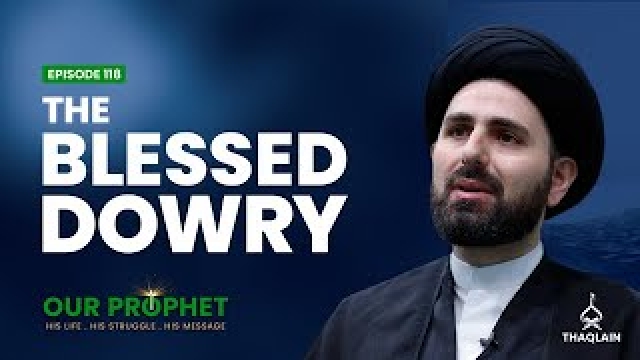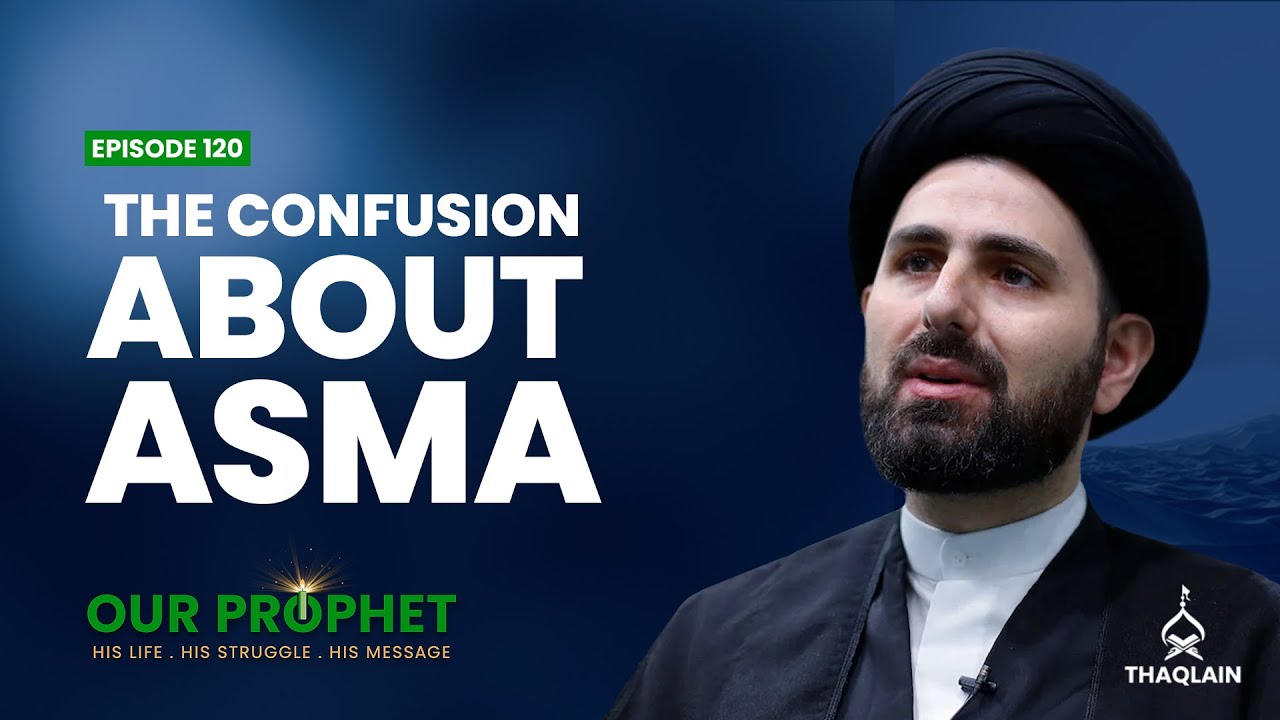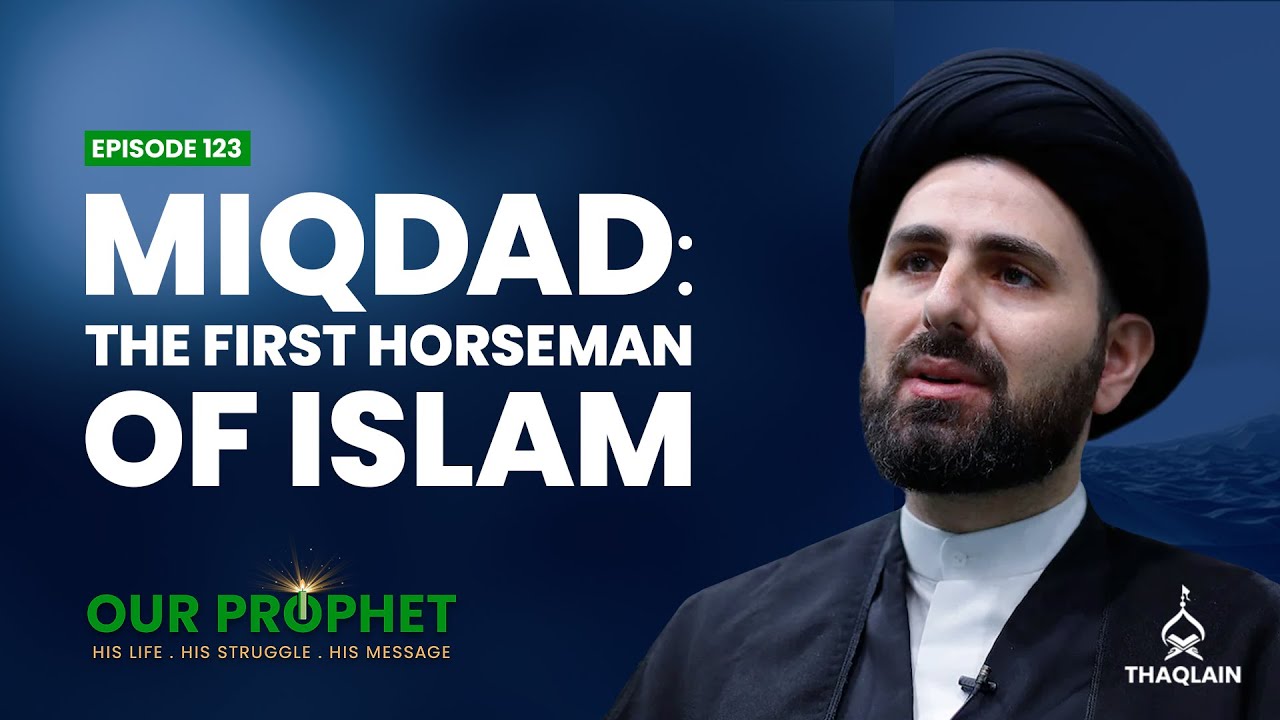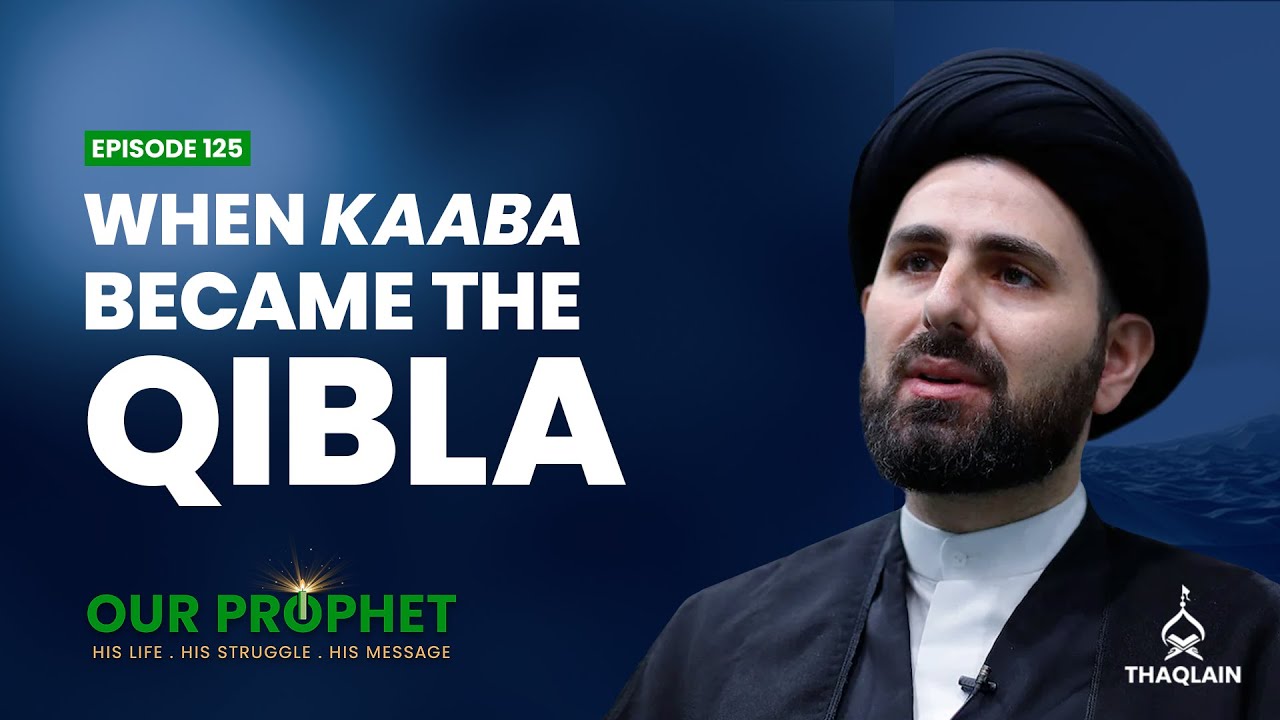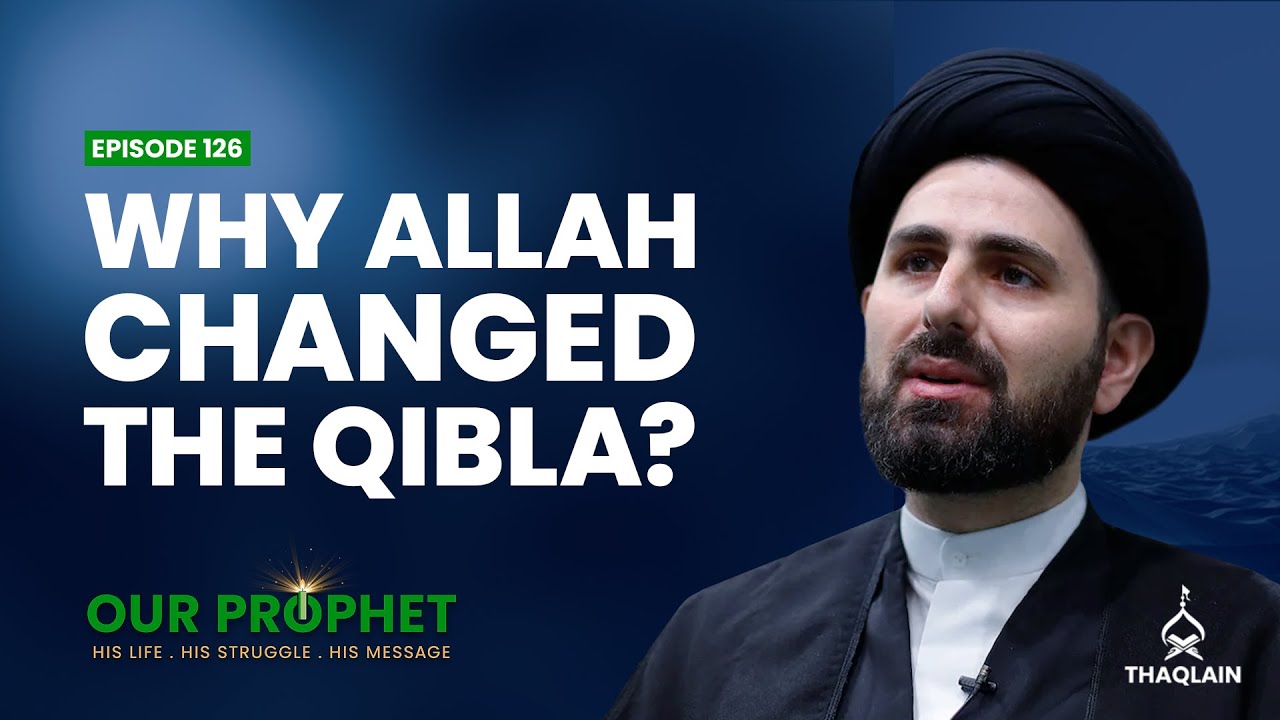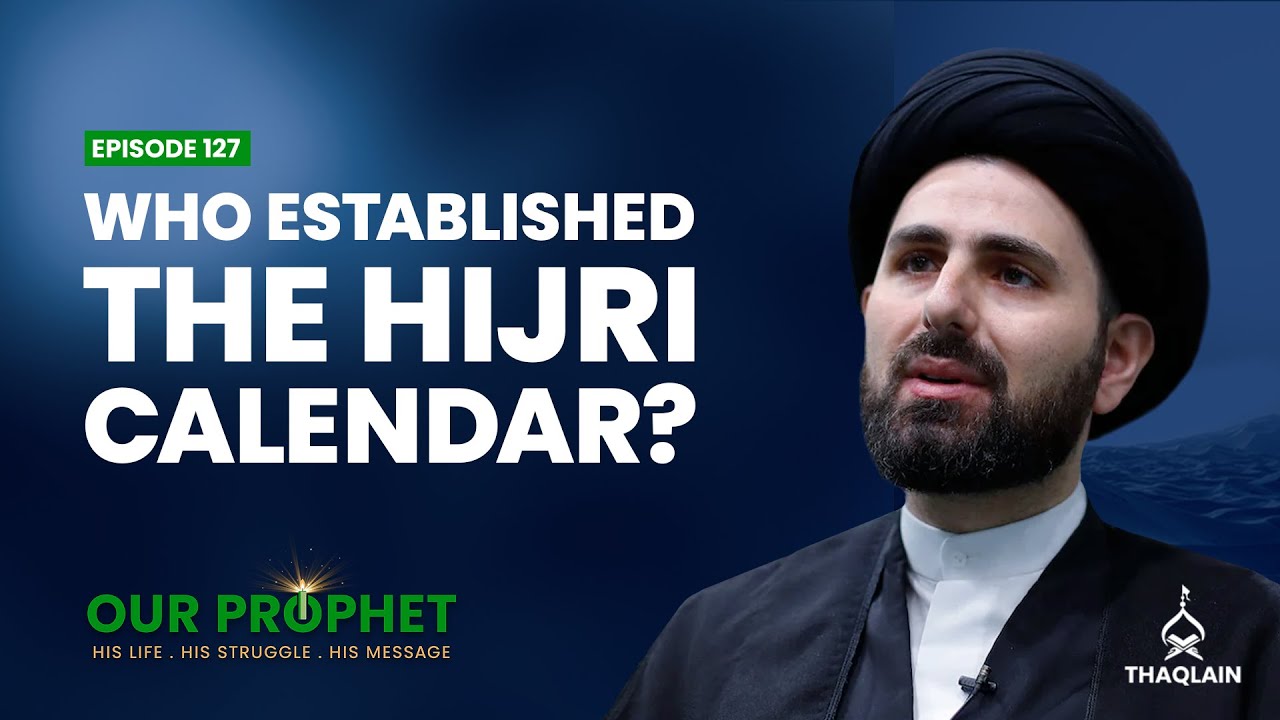The Prophet's Prayers for Medina and Al-Baraa ibn Maroor - Our Prophet 6 - 93/127
Previously, we examined the construction of the Mosque of Madinah and the companions had the honour of participating in this very important and historical event. Not only men participated, we have references of women also participating in the construction of Madinah's Mosque.
Now, in Arabia, this was somewhat unusual to allow women to take part in construction and carry rocks, stones, other building material and to assist. Remember, Arabia was a very conservative society. Women were marginalized. They were always treated as second class citizens and to give them a role like that was quite unusual. But the Prophet, salla Allahu 'alayhi wa alihi, allowed them to take part in the construction of the Mosque. And that reflects the openness of the religion of Islam. It reflects the high status that the Prophet, salla Allahu 'alayhi wa alihi, gave to women at that time.
So, some companions may have found this unusual that women are also participating, but the Prophet, salla Allahu 'alayhi wa alihi, did not ban them. The Prophet, salla Allahu 'alayhi wa alihi, gave his approval and he did allow them to participate in the construction of the Mosque. And this, you know, goes a long way in showing how open the Prophet, salla Allahu 'alayhi wa alihi, how open he was to the positive contributions of women in society. At a time when this was something almost unheard of.
Do not compare it to our standards today. Look at the standards at that time in 7th century Arabia. This was very, very unusual. And really the Prophet, salla Allahu 'alayhi wa alihi, was very progressive when it came to the active and positive participation of women in society. So, the Masjid, was constructed and it became a very important centre in the city of Madinah.
Now, one of the challenges that the Muhajirin [Makkan migrants] had in Madinah, those who had migrated to Madinah, was that the environment and the weather of Madinah was not that healthy. According to historical records, Madinah always suffered from epidemics, diseases, illnesses, viruses, you name it. Such that it was known that whoever would visit Madinah, in fact, they would get a fever, sometimes they would die, they would be in bad shape.
And some historians have stated this is one reason why Madinah was called, Yathrib. When the Prophet, salla Allahu 'alayhi wa alihi, migrated to Madinah, its name was Yathrib. The historic name is Yathrib. Now, there are two opinions as to why Madinah was given this name. One opinion says it goes back to a man by the name of Yathrib. His first name was Yathrib, he was from the 'Amaliqah' - The Amalikites.' They were one of the first inhabitants of this region. So, his name was Yathrib, and how and this is how the city acquired this name.
But, then you have a second group of historians who believe the word Yathrib is a negative word. It comes from the Arabic word, you know, 'Athraba'. It has a negative connotation, it means something that is rebuked, something that is corrupt. We call that 'Athraba'. "La tathriba 'alaykum al-yawm" (12:92). The Qur'an even uses that in that sense.
So, the word Yathrib really has a negative meaning in the Arabic language. Corruption, blame, something negative and that is why the Prophet, salla Allahu 'alayhi wa alihi, when he arrived in Madinah, he changed the name of the city. One of the names that the Prophet gave to Madinah was Tayyibah. One of the names of Madinah is Tayyibah- 'The good city, the pleasant city.'
And the Prophet actually made a Du'a, according to some narrations. He said when the Muhajirin complained to him, they told me, Ya Rasul Allah, Where did you come? You came to a city that is known for diseases, for problems. It is not the best environment and we are getting sick over here.
So, the Prophet made a Du'a and he said, 'Allahumma Habbib ilayyna al-Madinah -'Oh Allah, make this city pleasant to us. 'Kama habbabta ilayna Makkah'- 'just as we, the migrants, loved Makkah and the environment of Makkah, 'Aw Ashadd-'even allow us to love Madinah more.' 'Wa barik lana fi Muddiha wa Sa'iha-' Oh Allah give us the blessings of Madinah in our food, in our sustenance', 'wanqulu waba'aha wa hummaha 'anna-'O Allah, take the 'Waba'- the epidemics, the diseases, the fevers that people are struck with over here to another place.'
It is reported that after the Prophet, salla Allahu 'alayhi wa alihi, made this Du'a, made this supplication, the situation changed in Madinah. Its environment became healthy, became very pleasant. And those Companions and the people of Madinah, you know, stopped getting sick as much as they would before them. So, this was the Barakah of the Prophet, his existence there, his presence there and his Du'a.
[Also shows that names have an impact on..] Yes, Islam does teach us that negative names have negative effects and impacts. That is why it is highly recommended to name your children positive names. Arabs had this custom even until today in some parts of the world, they give negative names, names with negative meanings, derogatory meanings. It has an effect, it really does have an effect. While a name, we only tend to think of it as something merely symbolic, but it has physical impacts. Yes, words, names have real impact on our lives. There is a lot of science even behind this about positive words having positive impact, negative words having a negative impact.
So ,this word 'Yathrib', which comes from the root word 'Athraba', right, which has a negative meaning, a meaning of blame, a meaning of corruption. The Prophet changed it. Give this city a beautiful name, Tayyibah-'the good city, the pleasant city' and Subhana Allah, when that name change was made, the situation changed in Madinah. It really did become a pleasant city.
So this is an example of the role of names and how they have an impact. A positive name will have a positive impact.
Now, there was this man from the Ansar who was desperately waiting for the Prophet, salla Allahu 'alayhi wa alihi, to come to Madinah. See, the Ansar, they had pledged allegiance to the Prophet and all of them who gave him allegiance, they welcomed him in Madinah and they stayed true to their allegiance. Except, of course, we mentioned 'Abdullah ibn Ubayy, who did not welcome the Prophet, salla Allahu 'alayhi wa alihi.
One of those Ansar men had the name of Al-Bara' Ibn Ma'rur. Al-Bara' was the first person in Makkah in the Allegiance of Aqabah to give allegiance to the Prophet. Remember those twelve, the first twelve at the allegiance of Aqabah, who in Makkah came to the Prophet and they told him we recognize you as the Messenger of Allah, we welcome you to Madinah, come to Madinah and the Prophet assigned them as the 'Nuqaba'-'the leaders of the Ansar who would be representing Islam.'
The first of them to extend his hand to give allegiance to the Prophet was Al-Bara' Ibn Ma'rur. And he gave a speech and he mobilized the Ansar to support the Prophet, salla Allahu 'alayhi wa alihi. So, he played a very important role in encouraging the Ansar to welcome the Prophet and to facilitate the Hijrah.
Now, he was waiting for the Prophet, salla Allahu 'alayhi wa alihi, to come. But one or two months, about a month before the Prophet arrived in Madinah, he passed away. So, he was anxiously waiting for the Prophet to come to Madinah, but Allah Subhana wa Ta'ala, you know, decided to take him.
So, the Prophet, salla Allahu 'alayhi wa alihi, goes to his grave and he prays on him and he says, 'Allahumma ghfirlahu, wa rhamhu, wa rdha' 'anhu, wa qad fa 'alta'-'oh Allah, have mercy on him, O Allah, forgive him, be pleased with him. And I know that you have been pleased with him.' So, he was one of the great Muslims, one of the Companions of the Prophet who died right before the Hijrah. And the Prophet did a very beautiful prayer for him.
Now, Al-Bara' before he died, in his will, he dedicated one third of his money to the Prophet. He said, I want one third of my inheritance to be given as a gift to Rasul Allah, salla Allahu 'alayhi wa alihi. The Prophet took that money and he gave it to his inheritors, to his 'Waratha'-to his family. You know, he thanked them for their generosity, but he gave it back.
So let us remember these great heroes who truly sacrificed for the religion of Islam.




























